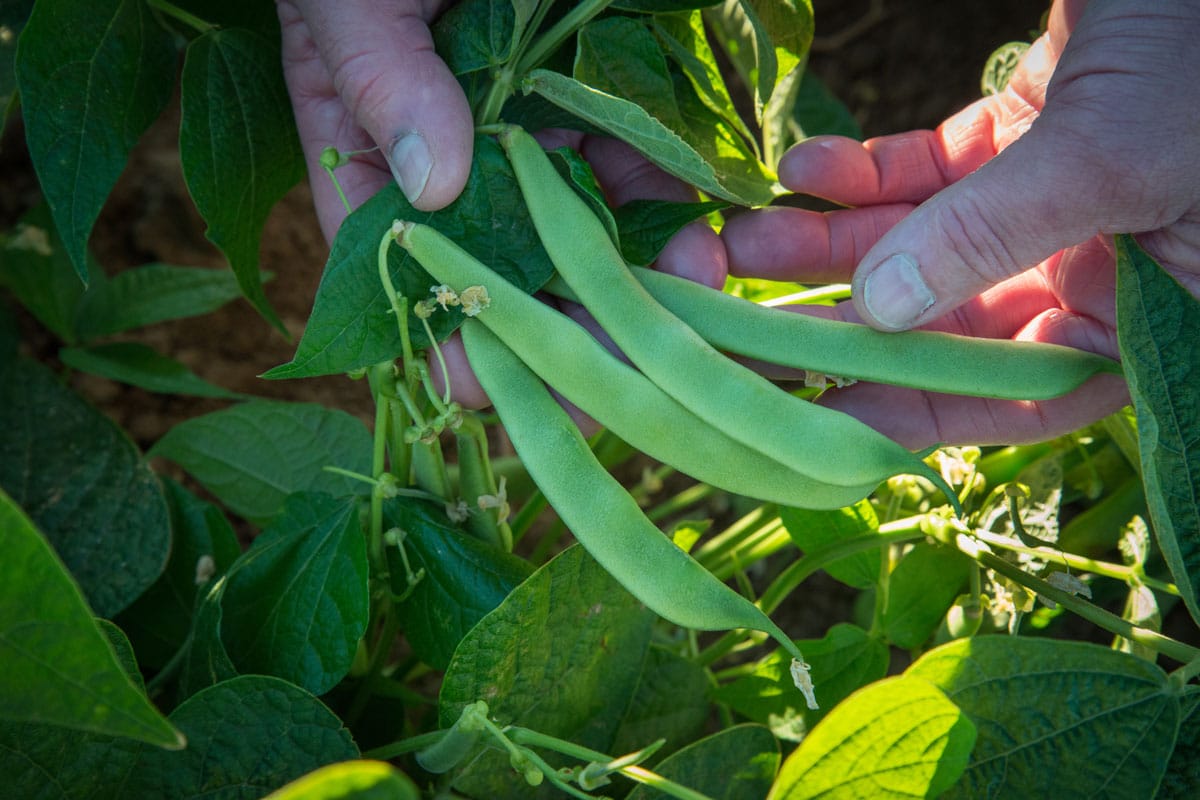I couldn’t find any specific information about your use of pesticides and/or any growth chemicals for your beans. Can you please be specific about what, if anything, you use? I’d need to know that before I purchase.
Thank you for your interest. My companies Zursun Ltd and Soranco Bean Products do not actually “grow” or maintain farms to produce the beans we distribute. We do however, work directly and personally with many, many farmers who grow and produce beans specifically for us. We receive their beans in the fall in a raw state and we perform the cleaning and milling and sorting to get them into condition for sale to the public.
We handle some seeds used to produce some varieties. Some varieties are grown in other states such as California, Washington, Oregon, Michigan, and Nebraska. Regarding any chemicals used in the production cycle I can only speak to the beans grown here in the Magic Valley of Southern Idaho. However, dry edible beans use far fewer agents in their production than many other crops.
There are two main areas where chemicals are used, one being fertilizers to promote vigorous plant health, and herbicides to destroy weed plants that would choke and kill the bean plants.
Typical fertilizer used is a combination of powered phosphates and nitrogen, with some potash and many growers also use animal manure from local dairy operations because it is prevalent and inexpensive. These are applied well before planting time and tilled into the soil and water is applied to balance out the levels.
Herbicides are also applied before planting to the soil and are specific in targeting certain weeds. Beans are planted several weeks later and from that point on weeds are controlled by cultivating where a tractor pulling a cultivating attachment moves through the bean rows and cuts and pulls any weeds from the soil. The typical brand names of these agents are, Sonalan, Eptam, Sevin, and Colmite. Not all are used; it is grower and area specific but most use Sonalan and or Eptam.
I am not a botanist or anything of the sort so I cannot comment on any possible trace amounts or residues that may be absorbed and present in the mature bean. This would of course require a scientific chemical analysis. There is likely to be some information available on the web. I have attached a document from the EPA which discusses the use and effects of Eptam. In brief page 31 of this report describing residuals left behind, found that any measureable amounts were less than, 5 one hundredths parts per million. (<0.05 ppm). For all intents and purposes this amounts to non-detectable or 0.
I cannot say whether this applies to the other possible agents that are used but for myself I’ve been around beans and bean farms all my life. I have never heard of any illnesses ascribed to beans and lentils grown using the typical chemicals we see. Also, all our bean and lentils seeds have been developed using standard plant breeding methods of single plant selection and mating to achieve more disease resistant plants with strong yield potential and of course the color and shape that is desired. No genetic modification is done nor is it practiced in the dry edible bean industry. I do not know if this holds true for Soy Beans. We do not grow or sell soy beans.
Obviously a completely organic growing method would be more comforting. The costs to the grower to grow organically are very high and to make it work they must choose specific crops that they know they can sell. Heirloom varieties are produced in such small quantities it is not possible to have them grown organically without taking very strong and risky financial positions on crops that may or may not have a market. Growers require fixed contracts to be paid no matter the circumstance, whether they get a crop or not. The pressure can only be managed by using conventional growing methods where we have more choices of growers to work with and the grower has better potential for good yields per acre.
I hope this helps you understand a little more about bean production and allay any possible trepidation you may have concerning trace chemical carryover. If you are of a mind that any amount is unacceptable than I would recommend you seek out strictly organically grown products. Good health to you and yours.
Good health to you and yours.

